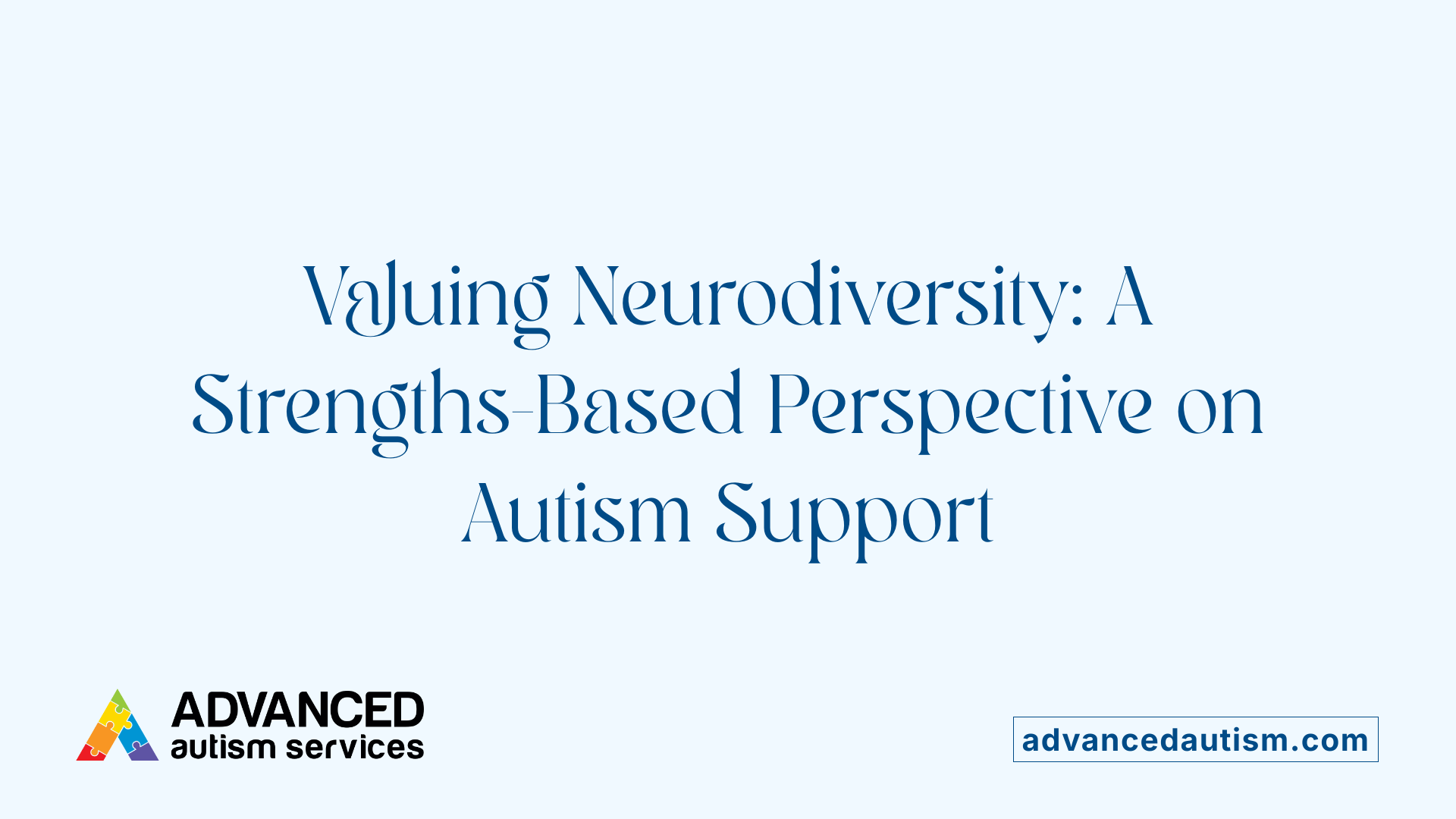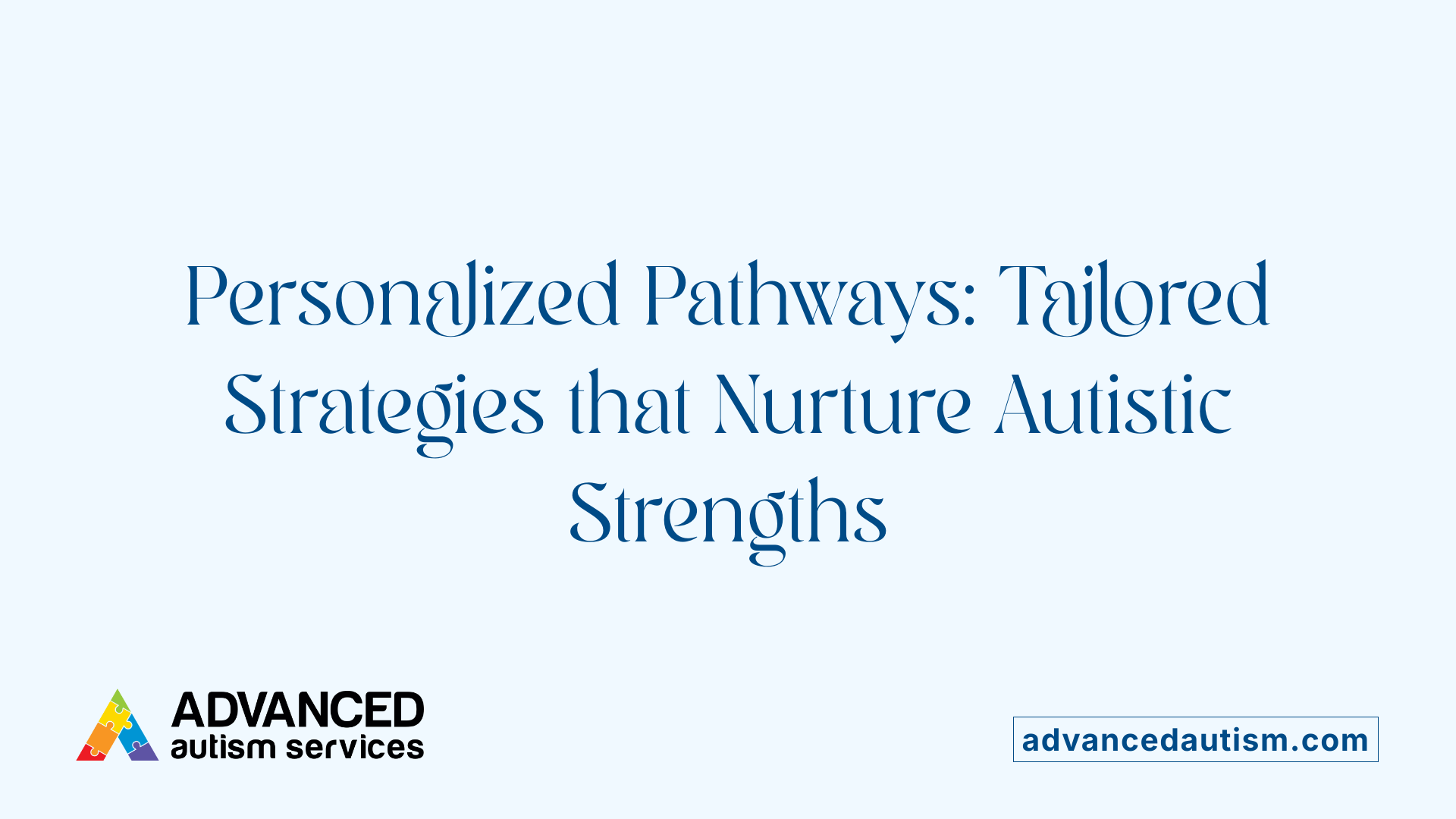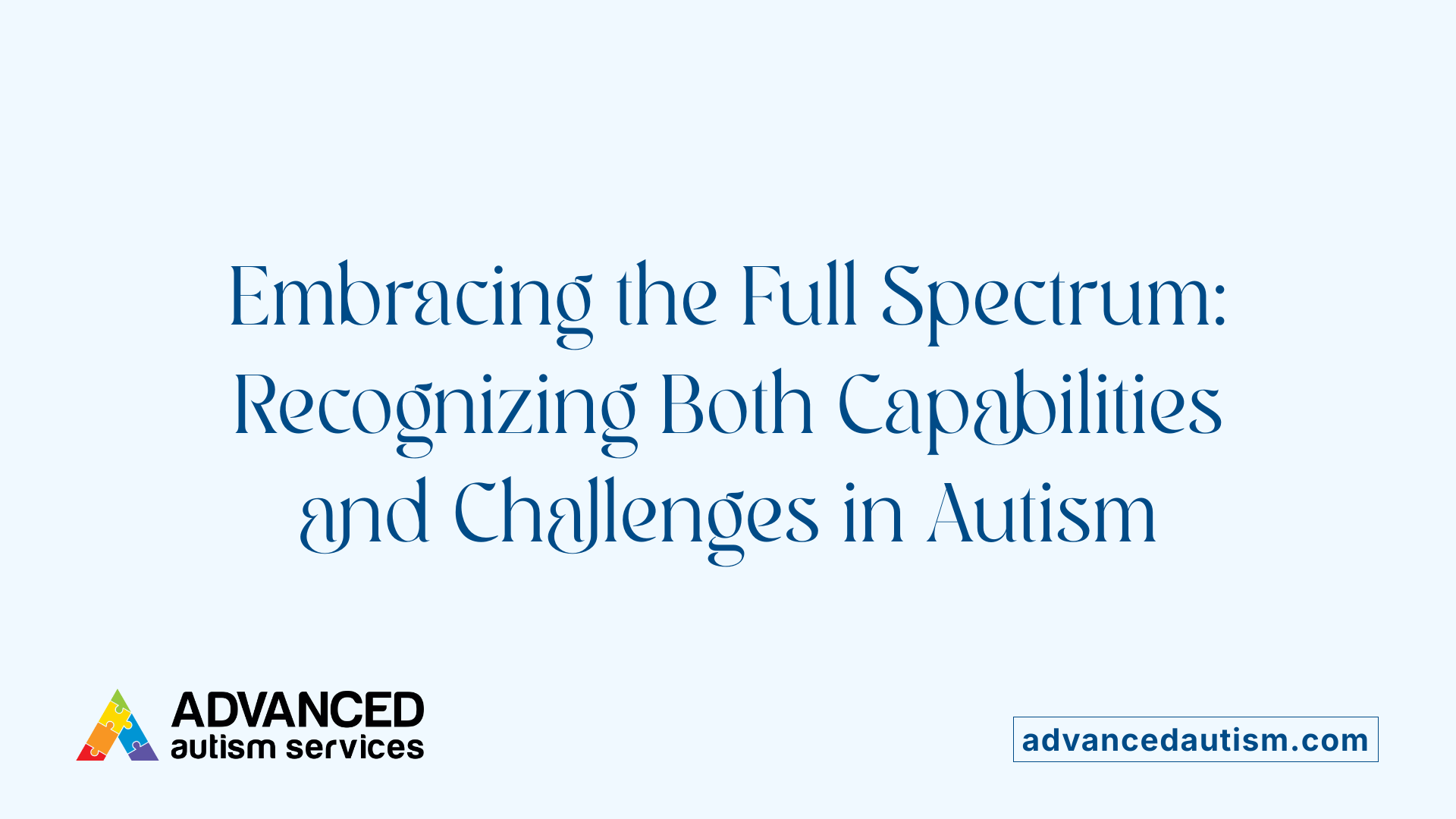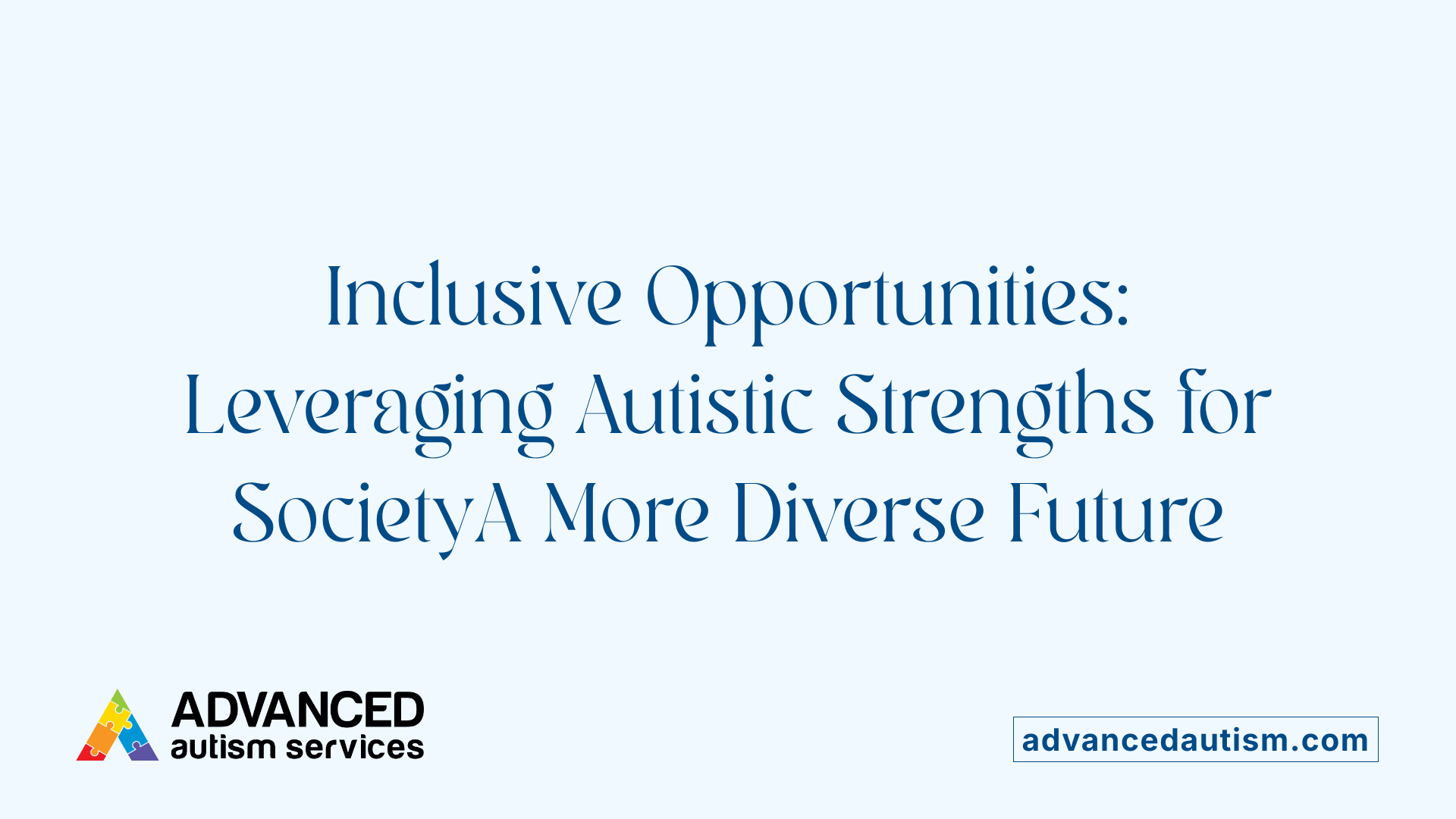Understanding Autistic Strengths and Abilities: A Perspective Shift
While autism is often associated with challenges, there is a rich landscape of strengths and talents within the autistic community that deserve recognition. Moving beyond deficits to a strengths-based perspective not only empowers autistic individuals but also benefits society at large. This article explores the diverse abilities that characterize autism, the importance of recognizing these talents, and strategies to nurture and leverage them for personal growth, societal contribution, and inclusive development.
Autistic Individuals’ Strengths: A Spectrum of Talents and Traits
What are some positive traits and strengths associated with autism?
Autistic individuals often have a wide range of strong qualities and talents that enrich both their own lives and society. One of the most prominent features is their exceptional attention to detail. They tend to observe things that most people might overlook, which can be highly valuable in fields like engineering, data analysis, and quality control.
Memory and recall are also significant strengths. Many autistic people can remember extensive details over long periods, such as specific dates, events, or instructions, which supports their learning and expertise development.
Creative problem-solving is another hallmark. Their ability to think systematically and recognize patterns enables them to devise innovative solutions to complex problems. This strategic thinking often leads to breakthroughs in science, math, and technology.
Deep interests and intense focus allow many autistic individuals to develop profound expertise in preferred subjects. Whether it’s astrophysics, vintage clothing, or music, their dedication can result in mastery and high productivity.
Honesty and loyalty are qualities frequently observed. Autistic individuals often value truthfulness and are dependable, making them trustworthy friends and colleagues. Their strong sense of justice guides their actions and motivates them to challenge unfairness.
Visually and perceptually, many autistic people excel. They may demonstrate perfect pitch, identify subtle differences in smells, or have extraordinary visual-spatial abilities. Such sensory strengths contribute to their perceptual expertise and artistic talents.
Their systematic thinking is often coupled with a preference for routines and structured environments. Creating their own systems and routines, they thrive on predictability, which helps them manage daily tasks effectively.
Overall, recognizing these strengths can enhance understanding, support, and inclusion of autistic individuals, enabling them to contribute uniquely and meaningfully to diverse areas of life.
Harnessing Talents: The Benefits of Recognizing Autistic Expertise
How can recognizing talents and abilities in autistic individuals be beneficial?
Recognizing the skills and strengths of autistic people is incredibly valuable. It helps to identify their unique abilities, such as exceptional memory, keen pattern recognition, strong attention to detail, and creative approaches to problem-solving.
By valuing these talents, educators and employers can tailor support and develop pathways that better suit their interests and strengths. This personalized approach boosts confidence and motivation, encouraging autistic individuals to pursue their passions and realize their full potential.
For instance, many autistic people excel in fields requiring visual thinking, systematization, or analytical skills like science, mathematics, art, or technology. Understanding their strengths can lead to better career matches, fostering independence and job satisfaction.
Furthermore, focusing on abilities rather than deficits challenges misconceptions about autism. It promotes a positive, strengths-based perspective that emphasizes contribution and value.
Recognizing these qualities benefits society at large, tapping into the often-overlooked talents of autistic individuals. This inclusive approach enriches workplaces, communities, and cultural spaces, fostering innovation and understanding.
In summary, acknowledging and nurturing autistic strengths leads to personal growth, societal inclusion, and the unlocking of extraordinary human potential.
A Strengths-Based Approach: Redefining Autism in Support and Practice

What does a strengths-based perspective on autism entail?
A strengths-based perspective on autism involves recognizing and emphasizing the unique talents, skills, and interests of autistic individuals. Instead of focusing mainly on challenges or deficits, this approach seeks to identify what autistic people excel at and how these abilities can be nurtured.
Many autistic individuals develop deep expertise in their favorite topics, such as visual arts, music, or science. Their intense focus, or hyperfocus, often leads to high-quality work and productive outcomes. For example, some autistic children excel in visual-spatial reasoning, pattern recognition, and memory, making them particularly skilled in fields like engineering, mathematics, or data analysis.
This approach promotes empowerment by fostering self-esteem and encouraging participation. It involves designing environments and interventions that support and build on existing strengths, whether through education, employment, or community activities.
Supporting autistic strengths can also involve inclusive assessment methods. These might include visual supports, non-verbal reasoning tests, and detailed developmental evaluations that highlight abilities such as problem-solving, system thinking, or creative expression.
When language is positive and affirming, it enhances self-confidence and societal inclusion. Recognizing strengths can guide tailored strategies that help autistic individuals succeed academically and professionally, like offering routine-based tasks for those who thrive on routines or providing opportunities to develop special interests into careers.
Ultimately, adopting a strengths-based view fosters a more respectful, accurate, and compassionate understanding of autism. It encourages society to value neurodiversity and supports autistic people in contributing their unique perspectives and talents.
How can this approach improve support and practice?
This perspective reshapes traditional views by shifting focus from deficits to possibilities. It leads to inclusive assessment methods, positive language in interventions, and increased participation from autistic individuals in decision-making.
By recognizing and harnessing strengths, professionals and communities can create environments where autistic people thrive. Celebrating strengths like honesty, loyalty, creativity, and exceptional attention to detail fosters mutual respect and understanding.
This approach not only benefits autistic individuals by enhancing their well-being and opportunities but also enriches our societies through their diverse contributions.
Supporting Development Through Tailored Strategies

What strategies are effective in supporting the development of autistic strengths?
Supporting autistic individuals effectively involves strategies that recognize and nurture their natural abilities and interests. One fundamental approach is developing personalized education plans that focus on areas where they show particular talent or passion. For example, leveraging special interests such as art, mathematics, or music can motivate learning and foster a sense of mastery.
Encouraging hobbies and creative pursuits allows autistic people to flourish outside of formal settings. Many find joy and confidence in arts like visual arts, musical activities, or science-based projects, which can also enhance social skills through shared interests.
Utilizing visual supports and tools is especially effective, given the strong visual thinking skills many autistic individuals possess. Visual aids, charts, and structured routines help them process information more easily and stay organized.
Promoting engagement in hobbies and artistic pursuits not only develops skills but also nurtures emotional well-being and provides avenues for self-expression. Activities like drawing, music, or coding can be gateways to careers and social connections.
Building communication and social skills is crucial, particularly by focusing on strengths such as honesty and loyalty. Interventions can include social stories, role-playing, or targeted employed techniques that recognize their unique ways of experiencing and expressing emotions.
Overall, strategies that emphasize strengths—like detailed observation, pattern recognition, and systematic thinking—can significantly enhance confidence, independence, and societal participation. Recognizing these abilities helps foster an environment where autistic individuals are supported to reach their full potential.
Understanding Autism as a Balance of Challenges and Strengths

How can understanding both challenges and capabilities in autism inform better support practices?
Recognizing the full spectrum of achievements and difficulties faced by autistic individuals is crucial for providing effective support. Autism is not solely characterized by deficits; many autistic people demonstrate remarkable strengths that can be nurtured.
For example, many autistic individuals have extraordinary memory, pattern recognition, and creative talents. They often excel in fields like science, mathematics, art, and music, driven by their intense interests and attention to detail. These abilities can be leveraged in educational settings and workplaces by creating environments that value and build upon their skills.
At the same time, understanding sensory processing differences is vital. Many autistic people experience heightened sensitivity to sounds, lights, textures, and smells. These sensory differences can cause discomfort or overwhelm. Support strategies might include providing sensory-friendly spaces, noise-canceling headphones, or tailored routines to manage sensitivities.
Executive function challenges, such as difficulties with planning, organizing, and multitasking, are common. Support can involve visual schedules, step-by-step guidance, and structured routines to promote independence and reduce frustration.
Recognizing individual variability is essential. Not all autistic people have the same strengths or face the same challenges. Some may have exceptional visual or auditory perception, while others may excel in systematic thinking or rote memory.
A holistic approach to support considers this diversity. It emphasizes personalized interventions that acknowledge both the difficulties and the unique abilities of each person. Such an approach fosters self-confidence, participation, and success across different life areas.
In summary, understanding both the hurdles and potentials of autism leads to more respectful, empowering, and effective support strategies. It shifts the focus from fixing deficits to cultivating strengths, ultimately improving well-being and societal inclusion for autistic individuals.
Research Insights: The Evidence Behind Autistic Strengths and Capabilities

What research findings highlight the strengths and capabilities of autistic individuals?
Scientific research provides extensive evidence pointing to the diverse strengths of autistic people. One prominent area is pattern recognition and visual reasoning. Studies show that many autistic individuals excel in visual search tasks, pattern detection, and nonverbal reasoning. For instance, research indicates that autistic children often perform better than their neurotypical peers in visual-spatial reasoning tests, meaning they can quickly identify embedded figures or understand complex visual information.
Sensory perception is another strongly supported domain. Autistic individuals frequently demonstrate heightened sensory abilities, such as perfect pitch, the ability to identify mixed smells, or discern sounds with exceptional accuracy. Evidence points to increased perceptual skills seen even in infancy; for example, some studies observe superior search abilities in nine-month-old infants with autistic siblings, suggesting that enhanced sensory perception is innate.
High focus and the capacity to develop expertise are well documented. Many autistic people hyperfocus on their favorite interests, leading to mastery over time. This intense concentration often results in high-quality work and innovative solutions, especially in fields like arts, science, or technology. These focused interests can facilitate skill-building, social connections, and even employment opportunities.
Certain talents, sometimes categorized as savant abilities, are also supported by research. While these exceptional skills are rare, they illustrate the potential for extraordinary capabilities, such as musical prodigies or prodigious memory skills. Many autistic individuals exhibit impressive feats like perfect recall of detailed information or remarkable artistic talents.
Assessment practices increasingly recognize the importance of strengths-based approaches. Traditional evaluations often emphasize deficits, but recent research encourages focusing on skills such as honesty, reliability, system-building, and precision. These strengths support personalized interventions, promote positive identity development, and reduce stigma.
Summing up, the research highlights a broad spectrum of abilities—ranging from perceptual and cognitive skills to social strengths such as honesty and justice-oriented morals. Recognizing these diverse talents encourages societal acceptance and supports better educational, employment, and social strategies for autistic individuals.
Enhancing Inclusion in Employment and Education
 Recognizing the many strengths of autistic individuals can lead to more inclusive and effective practices in both employment and education. These strengths—such as heightened attention to detail, exceptional memory, creativity, system thinking, and intense focus—offer valuable opportunities to tailor support systems in ways that empower autistic people.
Recognizing the many strengths of autistic individuals can lead to more inclusive and effective practices in both employment and education. These strengths—such as heightened attention to detail, exceptional memory, creativity, system thinking, and intense focus—offer valuable opportunities to tailor support systems in ways that empower autistic people.
In the workplace, understanding these abilities can influence recruitment strategies, accommodation choices, and team dynamics. For example, emphasizing strengths like logical reasoning and pattern recognition can highlight suitability for roles in science, engineering, or data analysis. Structured routines, clear instructions, and sensory supports can help autistic employees thrive. Mentorship programs that focus on strengths, rather than solely addressing challenges, foster confidence, motivation, and career development.
Similarly, in educational settings, curriculum design that embraces visual thinking and special interests encourages deeper engagement. Utilizing visual supports and emphasizing routines can help autistic students succeed academically. Recognizing their remarkable memory and detail-oriented skills can lead to customized learning strategies—such as using visual search tasks or routine-based schedules—that match their natural talents.
In both contexts, developing support networks and mentorship schemes further promotes success. Connecting autistic individuals with peers and mentors who understand their strengths helps build confidence and provides role models. These initiatives foster a community where abilities are celebrated, and individuals are guided towards personal and professional fulfillment.
| Practice Area | Strategies | Benefits | Additional Notes |
|---|---|---|---|
| Employment | Personalized onboarding, sensory accommodations, flexible routines | Increased productivity, job satisfaction, retention | Assign roles that leverage pattern recognition and detailed work |
| Education | Visual supports, routine-based learning, interest-driven projects | Enhanced learning, motivation, skill development | Support early identification of talents like hyperlexia or visual thinking |
| Support Networks | Mentorship programs, peer groups, advocacy | Confidence building, community engagement | Connects strengths to real-world applications and social support |
By focusing on these strengths, organizations and educational institutions can create environments that not only support autistic individuals but also benefit from their unique perspectives. Developing inclusive practices grounded in a deep understanding of autistic abilities enables everyone to reach their full potential and fosters a more diverse and innovative society.
Celebrating Neurodiversity and Building Futures
Recognizing and nurturing the diverse strengths and abilities of autistic individuals not only destigmatizes autism but also provides pathways for meaningful engagement and contribution. By adopting a strengths-based perspective, society can create more inclusive environments in education, employment, and community life. This approach fosters empowerment, encourages self-awareness, and highlights the immense potential within neurodiverse populations. Embracing autism’s unique traits and talents enriches our collective understanding and paves the way for a future where diversity in thought and ability is celebrated and harnessed for societal advancement.
References
- Autistic strengths
- the survey of autistic strengths, skills, and interests - PMC
- Strengths and abilities in autism
- The Strengths and Abilities of Autistic People in ...
- Thinking and learning strengths in autistic children
- Celebrating Neurodiversity: Powers and Strengths of Autism
- Finding strengths in autism
- Understanding Autism Strengths and Weaknesses
- Autistic strengths



